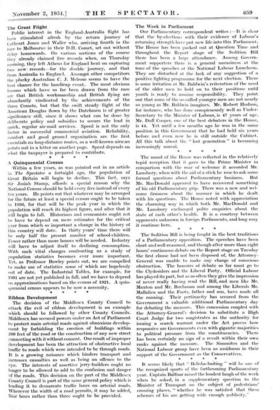A Quinquennial Census Within a few years, as was pointed
out in an article in The Spectator a fortnight ago, the population of Great Britain will begin to decline. This fact, says Sir JoSiah Stamp, affords a special reason why the National Census should be held every five instead of every ten years. He points out that whatever may be arranged for the future at least a special census ought to be taken in 1936, for that will be the peak year in which the population Will reach its highest figure, and after that it will begin to fall. Historians and economists ought not to have to depend on mere estimates for the critical year from which so important a change in the history of this country will date. In thirty years' time there will he only half the present number of school-children. Fewer rather than more houses will be needed. Industry will have to adjust itself to declining consumption. With such-vital changes confronting us a study of population statistics becomes ever more important. Yet, as Professor Bowley points out, we are compelled to make use of statistics some of which. are hopelessly out 'of date. The Industrial Tables, for example, for 1981 are not yet published in full, and we have to depend on approximations based on the census of 1921. A quin- quennial census appears to be now a necessity. * * * *














































 Previous page
Previous page